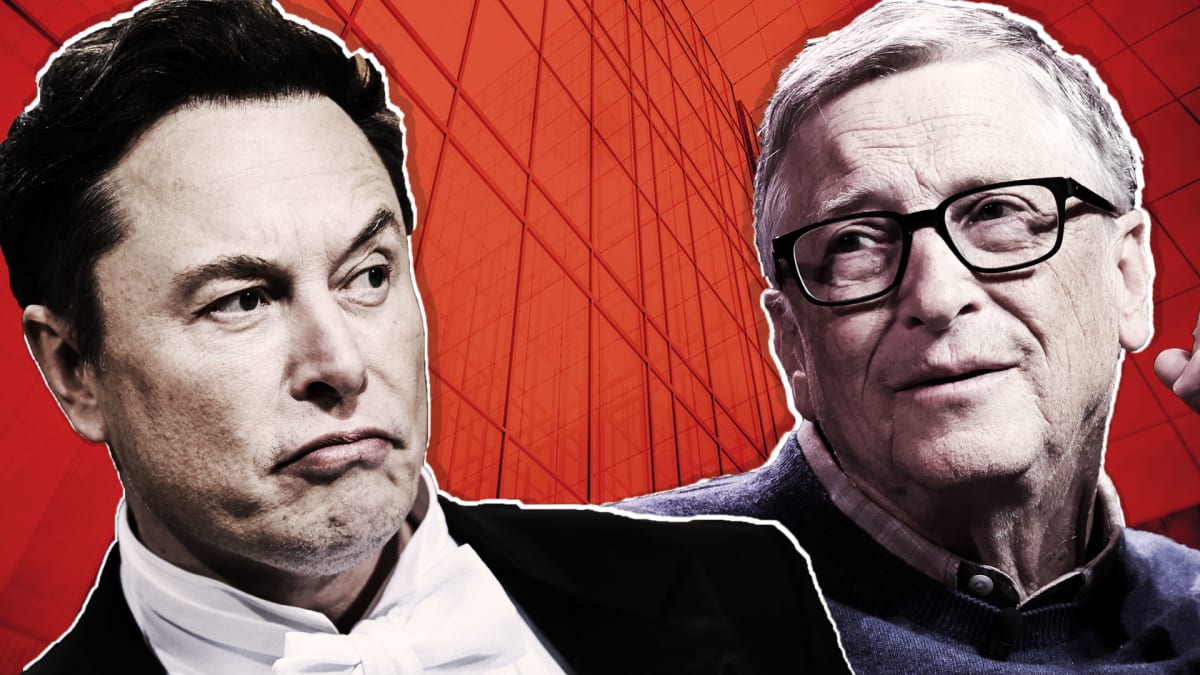
Elon Musk does not forgive those who doubt him. He resorts to reminding them when the opportunity arises.
Musk's enmity with his billionaire peer Bill Gates is based on the fact that the co-founder of Microsoft (MSFT) has often expressed doubts about certain ambitious projects of Tesla (TSLA), the manufacturer of premium electric vehicles and jewel of Musk's empire.
Last May, Musk protested because Gates had a short position of $500 million against Tesla. Short selling stock is a bet that the stock price will drop.
"Sorry, but I cannot take your philanthropy on climate change seriously when you have a massive short position against Tesla the company doing the most to solve climate change," Musk wrote to Gates. It was the end of a discussion the two billionaires were having about working together for common causes.
The mogul later accompanied his criticism with an unflattering and harsh tweet aimed at Gates.
Doubts on Tesla Semi
Musk just remembered Gates casting doubt on the feasibility and viability of long-haul electric vehicles, which was the result of a thinly veiled criticism of Tesla's 2017 promise to produce an electric semi-truck.
"EVs excel at short-haul travel,” Gates wrote in a blog post in August 2020. “That means they’re great options for personal cars and even medium-duty vehicles, like city buses and garbage trucks. But even if we develop cheap, long-range EVs that are powered by zero-carbon sources, electrification isn’t an option for many types of transportation.”
He added: "The problem is that batteries are big and heavy. The more weight you’re trying to move, the more batteries you need to power the vehicle. But the more batteries you use, the more weight you add — and the more power you need.”
Gates, who in the same post praised General Motors (GM) and Rivian (RIVN) for the breakthrough in electric vehicles without mentioning Tesla, concluded:
"Even with big breakthroughs in battery technology, electric vehicles will probably never be a practical solution for things like 18-wheelers, cargo ships, and passenger jets. Electricity works when you need to cover short distances, but we need a different solution for heavy, long-haul vehicles.”
"He has no clue," Musk hit back at the time.
'He Can Drive It Himself'
A little over two years later, Tesla is preparing to deliver its first semi-truck on Dec. 1. Musk took the opportunity to strike again on his enemy Gates. To mark the occasion, he has just sent a special invitation to the philanthropist: he invited him to show up and drive the semi-truck himself.
"I wonder what Bill Gates is saying about his comment in the past that Tesla Semis will 'NEVER HAPPEN'? @elonmusk," a Twitter user posted on Nov. 26. "Tesla Semi deliveries are happening next week! $TSLA."
To which Musk replied: "He can drive it himself if he wants!”
Musk likes to antagonize his detractors.
The Tesla Semi is a 100% electric truck that was unveiled in the fall of 2017. The automaker promised to start production in 2019, postponed this deadline to 2021, then to 2022 and finally to 2023.
Thanks to its battery capacity of 500 kWh, made up of Tesla's new 4680 cells, its reported consumption is less than 2 kWh/mile, creating a range of 300 to 500 miles, depending on the version.
The base price is $150,000 (300-mile range) and $180,000 (500-mile range).
The Semi is Tesla's first new vehicle in more than two years. The company has not delivered a new vehicle since the Model Y SUV/crossover, the first units of which were delivered to customers in March 2020.
Tesla Semi will enable the firm to enter a lucrative new market, at a time when the industry is struggling with rising energy costs and continued supply-chain disruptions. Tesla could potentially capture a good market share. Apart from PepsiCo, the automaker has received orders from many companies, including Walmart (WMT) and United Parcel Service (UPS).
The Semi has competitors, though: Nikola Motors (NKLA) is developing three semi-truck models: the Tre BEV, the Tre FCEV and the Two FCEV.







